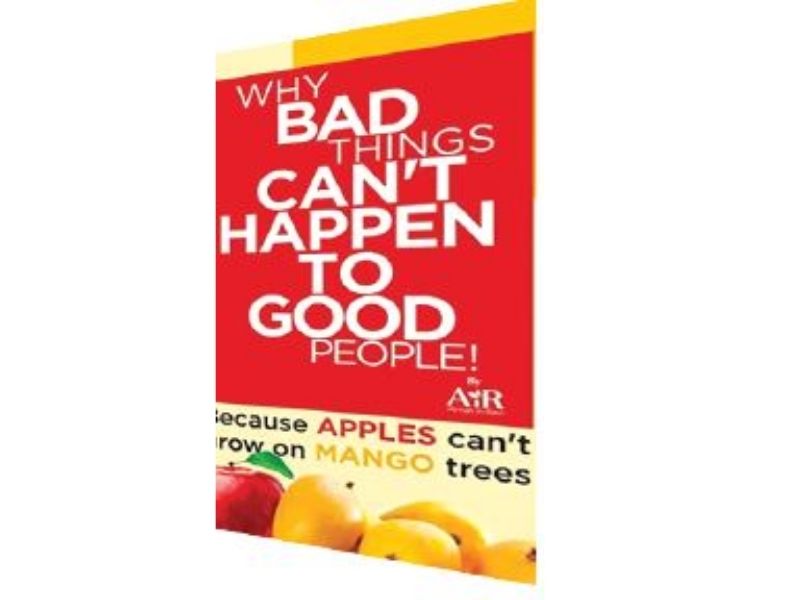 Why bad things can’t happen to good people! Because apples can’t grow on mango trees; Atman in Ravi; Air Institute of Realization; Rs.122; Pages 175
Why bad things can’t happen to good people! Because apples can’t grow on mango trees; Atman in Ravi; Air Institute of Realization; Rs.122; Pages 175
It is the human condition for every person to want happiness and conversely, to avoid pain. Yet, why is happiness so elusive and pain so ubiquitous? Why is there so much suffering in the world? Most of us must have reflected on this question at some point.
A related issue is unwarranted pain worldwide. Why do people who are genuinely good and selfless often experience excruciatingly painful situations in life when they obviously don’t deserve it? While it is easy to accept pain and suffering of the sinful and corrupt as just punishment, it’s far more difficult to explore the complexity of noble, upright and god-fearing people visited by pain and anguish. On a larger canvas, the enormous pain and suffering that millions of people are subjected to as a result of war, poverty, and displacement could prompt utter despair and make us lose hope in goodness and justice in this world.
For people who believe in God, the Creator and Controller of the universe, what we may view as unjust suffering poses major theological questions concerning the power, goodness and justice of God. If God is, as many religions aver, all-powerful, all-just and all-good, why does He permit suffering and distress on such a massive scale? If God is, as believers say, all grace, why doesn’t He put an immediate end to all misery in the world?
Atheists often raise such questions in their critique of the concept of God. It’s almost impossible to be powerful, good and just, as is claimed by believers and allow innocent people to suffer hurt and pain, at the same time, is their argument.
To this argument, theists respond by articulating the rationalisation that human suffering can be reconciled with faith in the existence of a benign and just God. However, different theistic traditions offer varied explanations in this regard.
This brilliantly written book by Bangalore-based spiritual teacher Atman in Ravi or AiR attempts to provide an explanation to the cryptic question of why bad things happen to good people. Writing from a theistic perspective, AiR believes that the answer is to be found in the karmic Law of Action and Reaction, and belief in rebirth.
According to the Law of Action and Reaction, people reap what they sow. To use a simile from the title of the book, apples can’t grow on mango trees. If we sow a mango seed, we can’t expect it to produce apples. Doers of bad deeds receive retribution sometime in the future, if not immediately, and conversely, good deeds have intended consequences in this world or the hereafter.
All religions believe in the hereafter, the afterlife that follows in the undiscovered country whose bourn no traveller returns. But the afterlife is differently conceptualised in various religions. Some scriptures believe that human beings have just one life, after which they will either go to heaven or hell forever, as reward or punishment for their actions on earth. Other religions believe in the cyclical theory of reincarnation determined by one’s deeds on earth — a perspective the author supports.
For instance, if a person widely regarded as good suffers a major calamity,
it could be the outcome of a wrong or sin committed in a previous life. Thus, we create our own pain. It is not the result of some arbitrary decision of God, suggests AiR. We have no one but ourselves to blame for our miseries.
The book provides thoughtful insights on how to manage suffering — our own as well as of others — and how to lead a life that can liberate us from everlasting pain and sorrow. Not everyone will, of course, agree with
everything the book says.
But that said, this book is a must-read. It attempts to harmonise life from a religious perspective in a manner easily comprehensible to even those readers with minimal theological knowledge.
Roshan Shah
Also read: Gut wrenching stories: Malala Yousafzai (with Liz Welch)























